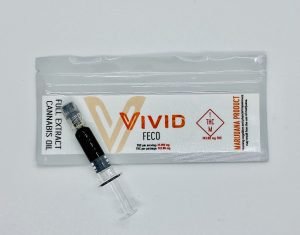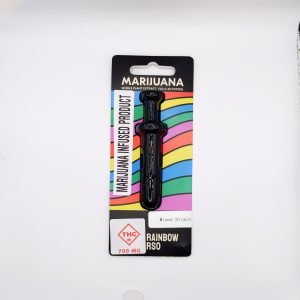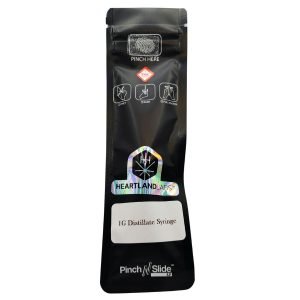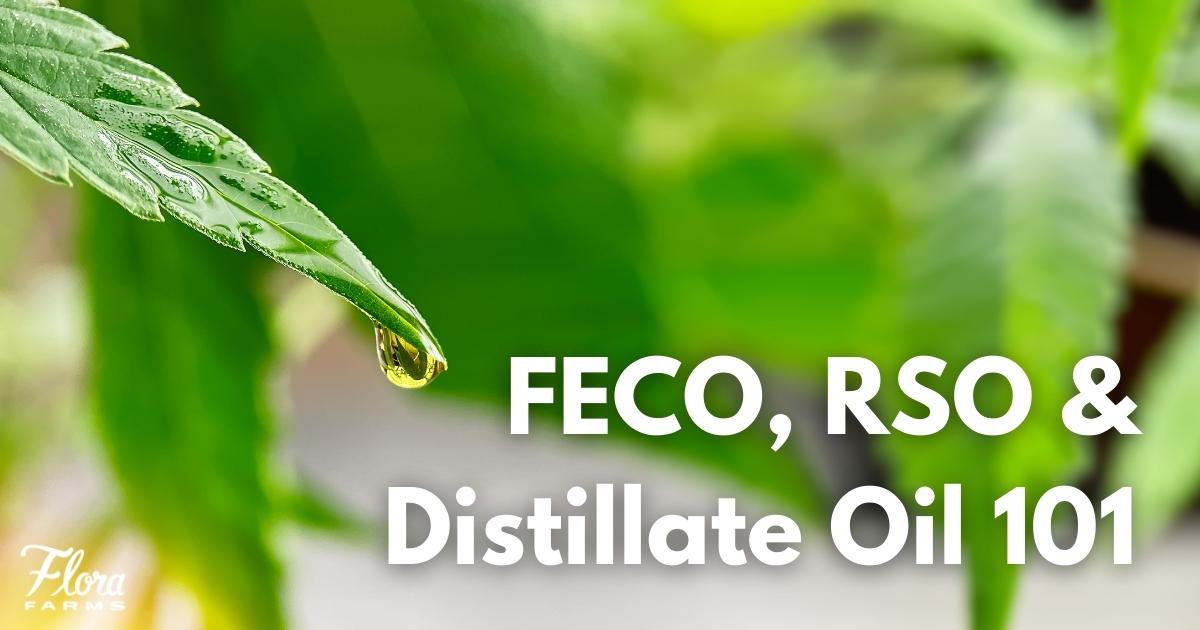As Missouri’s medical marijuana continues to grow and mature, there are more and more products available to patients. For medical marijuana patients seeking potent options, extracts like FECO, RSO, and distillate oil are gaining popularity. Yet these three types of products can be confusingly similar, with all three often sold in syringes for easier storage and dosing. That’s why we’re breaking down the differences between FECO, RSO, and distillate oil.
FECO
 FECO stands for Full-Spectrum Extract Cannabis Oil. Full-spectrum means that all the cannabinoids and terpenes found in the cannabis plant are extracted at the same ratios they were at in flower form. This leads to a more whole-flower experience, complete with the entourage effect, which is when cannabinoids work together synergistically leading to more potentially beneficial effects.
FECO stands for Full-Spectrum Extract Cannabis Oil. Full-spectrum means that all the cannabinoids and terpenes found in the cannabis plant are extracted at the same ratios they were at in flower form. This leads to a more whole-flower experience, complete with the entourage effect, which is when cannabinoids work together synergistically leading to more potentially beneficial effects.
FECO is a dark, thick oil that usually comes packaged in a syringe for easier dosing. It is generally ingested, meaning it is consumed orally and processed by the liver like an edible. Although, it can also be applied topically to the skin. FECO has a strong herbal cannabis flavor that may taste unpleasant but can be covered with food or placed in a gel capsule to avoid tasting the substance. If the flavor doesn’t bother you, the oil can be taken directly by mouth.
Due to its high potency, begin with a very small dose, no larger than a grain of rice. Because FECO is consumed orally, onset of effects can take over an hour. So if you don’t feel anything at first, wait 2-3 hours before taking a small dose again. Edible effects can last 8-12 hours and produce a more intense “high” than inhaled consumption methods, so it can even be better to wait and try again the next day to avoid any unpleasant overconsumption.
Patients consume FECO to help with a range of problems, especially pain relief and reducing inflammation.
RSO
 RSO, or Rick Simpson Oil, is another highly concentrated, whole-flower cannabis extract. It can sound identical to FECO, but there are mainly two things which set RSO apart from FECO. The first is the extraction method, and the second is the treatment regimen. But first, a little about how RSO came to be.
RSO, or Rick Simpson Oil, is another highly concentrated, whole-flower cannabis extract. It can sound identical to FECO, but there are mainly two things which set RSO apart from FECO. The first is the extraction method, and the second is the treatment regimen. But first, a little about how RSO came to be.
RSO is named for its creator, Rick Simpson, who developed the oil for medical purposes after developing a form of skin cancer. He applied the oil he created topically to cancerous spots on his arm and was surprised to find the spots disappeared after a few days. There are not scientific studies that back up the beneficial claims of RSO in treating cancer. You should always consult with their doctor when making medical decisions.
RSO is extracted using more heat than FECO and with highly flammable solvents. Because of this, it is important to get your RSO from a trusted source to assure the quality and safety of the product.
Rick Simpson didn’t just create his oil, he also created a recommended treatment plan that you can read about here. As with all medical decisions, consult your doctor.
Distillate Oil
 Finally, there is distillate oil. This extract has only the desired cannabinoids from the cannabis plant. All other plant-derived compounds are removed in the extraction process, including terpenes. This may lead to a reduction in the entourage effect as terpenes play a role, but there are still potential benefits and advantages to this versatile extract.
Finally, there is distillate oil. This extract has only the desired cannabinoids from the cannabis plant. All other plant-derived compounds are removed in the extraction process, including terpenes. This may lead to a reduction in the entourage effect as terpenes play a role, but there are still potential benefits and advantages to this versatile extract.
Its potency tends to run higher than FECO or RSO because it is a more distilled product without terpenes and other compounds reducing potency. FECO potency usually ranges 50-70% THC content, RSO potency ranges 50%-80% THC content, while distillate ranges 80%-95% THC content. Distillate oil also has less flavor than FECO or RSO, which is why it is the dominant type of concentrate used in commercial edibles.
The greatest upside to distillate oil is its versatility. It can be inhaled via vaporizing or smoking, ingested, taken sublingually, or used topically for different effects and purposes. If you consume distillate oil orally, treat it like any other edible. Start with a low dose, wait 2-3 hours to dose again if you do not feel effects.
And Remember…
Medical decisions should not be made based on advertising. Consult a physician on the benefits and risks of particular medical marijuana products.
Interested in becoming a medical marijuana patient? Click below to learn how.


